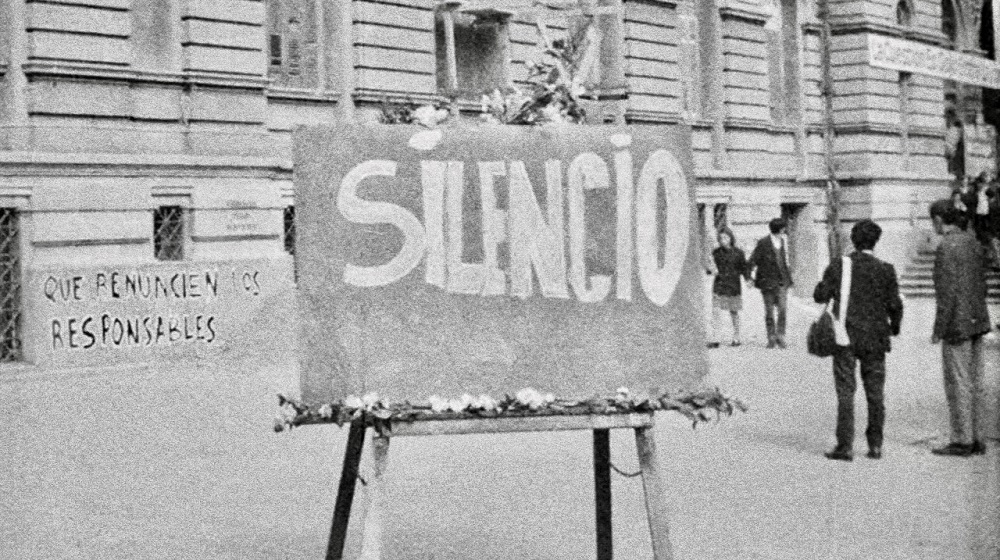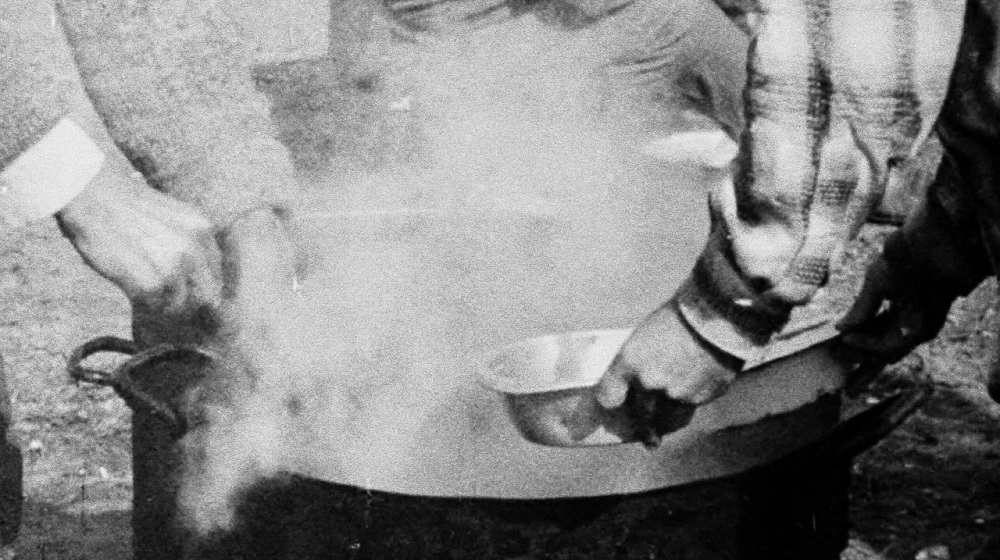This session reviews the history of C3M, starting with the experiences that informed its activity. For example, Walter Achugar, who, together with the Departamento de Cine de Marcha, chose to make the distribution of films from Asia, Africa and Latin America an anchor to create an audience and generate critical debates with students and workers. One of the more than 100 films that the C3M archive housed at one point, the Cuban Por primera vez (1967), shares with us the arrival for the first time of the cinema in a rural community. Or the classic Me gustan los estudiantes (1968), by Mario Handler, is a hymn to those who fight against imperialism. Edited using a razor blade and musically structured, this film caused a spontaneous riot at its premiere. The Grupo Experimental de Cine, made up of architecture students, made Refusila (1969). With a dizzying pace, this film shows the social protests in the streets over the course of a year.
Once consolidated, the C3M became a national political cinema thanks to its screening circuit. Urgently confronting reality, Líber Arce, Liberarse (1969) is dedicated to the first student martyr, killed in 1968. Going beyond borders, they also opened a subsidiary in Venezuela. Caracas, dos o tres cosas (1969), by Uruguayan Ugo Ulive, takes the city by radio, while Jorge Solé’s film TVenezuela (1969) deconstructs soap operas, commercials and newscasts.
As of 1971, the group suffered censorship and seizures of films, and of the only Moviola in the country. Achugar and Eduardo Terra were arrested and tortured, and other filmmakers were forced into exile. And yet, as Hugo Alfaro would say, these films continue, with their topicality, to promote the permanent desire for radical change.
Por primera vez, Octavio Cortázar, 1967, 35mm to DCP, 9 min; Refusila, Grupo Experimental de Cine (Daniel Erganián, Pola Alonso, Rosalba Oxandabarat, Alicia Seade, Alfredo Echaniz, Mauro Bardier, Walter Tournier and Dardo Bardier), 1969, 16mm to digital, 7 min; Líber Arce, Liberarse, Mario Handler, Marcos Banchero, Mario Jacob, 1969, 16mm to DCP, no sound, 12 min; Me gustan los estudiantes, Mario Handler, 1968, 16mm to DCP, 6 min; Caracas, dos o tres cosas, Ugo Ulive, 1969, 16mm, 16 min; TVenezuela, Jorge Solé, 1969, 16mm, 30 min.
Copies provided by Arsenal and Archivo General de la Universidad de la República (Uruguay).
Acknowledgements: Mario Handler and Florencia Handler. Special thanks to the ongoing work of the historians and specialists Cecilia Lacruz and Isabel Wschebor Pellegrino, and the Laboratorio de Preservación Audiovisual del Archivo General de la Universidad de la República (AGU).

